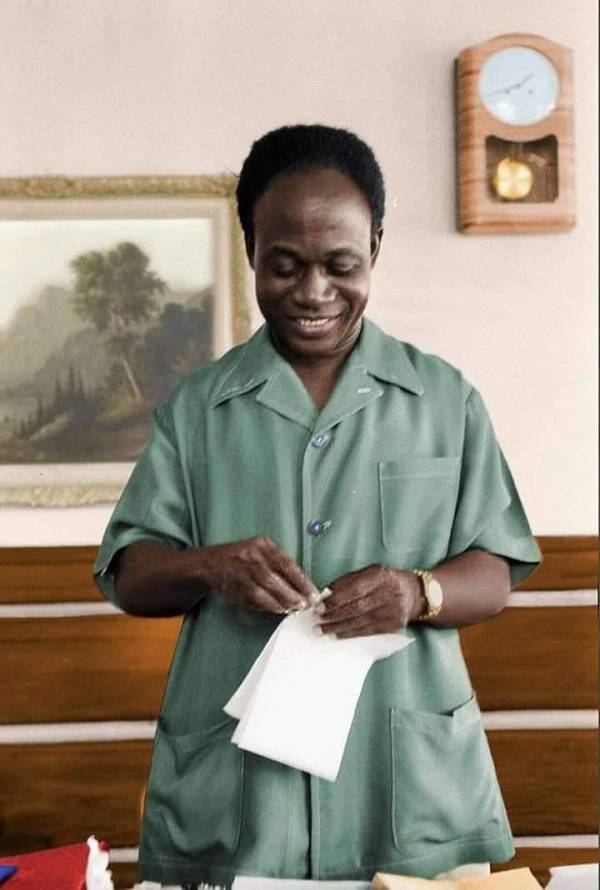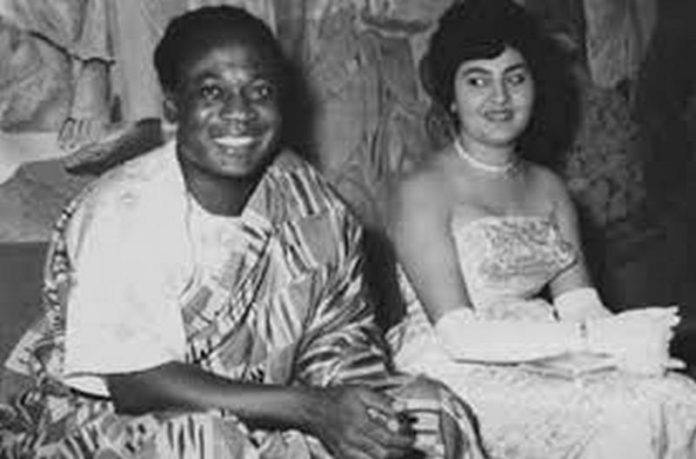Profile of Dr. Kwame Nkrumah – Ghana’s First President
Dr. Kwame Nkrumah was a Ghanaian statesman and political leader who served as the first President of Ghana. He is considered one of the most prominent figures in the history of Africa and is widely regarded as the “Father of Ghana”.

Nkrumah was born on September 21, 1909, in Nkroful, a small village in the Western Region of the Gold Coast (now Ghana). He received his primary education in the local Catholic mission school and later attended Achimota College in Accra. After completing his secondary education, he worked as a teacher before travelling to the United States to study at Lincoln University in Pennsylvania. He later earned a bachelor’s degree in education at the University of Pennsylvania and later a master’s degree in philosophy at the University of London.
After completing his education, Nkrumah returned to the Gold Coast and became involved in the country’s political movement for independence. He quickly rose to prominence and in 1947, he founded the Convention People’s Party (CPP), which advocated for self-government and independence for the Gold Coast. In 1951, he was elected as the leader of the CPP and became the leader of the opposition in the country’s legislature.
In 1954, Nkrumah led the CPP to victory in the country’s first general election, and he was appointed as the country’s Prime Minister. He led the country to independence from British colonial rule on March 6, 1957, and became the first President of Ghana.
During his tenure as President, Nkrumah implemented a number of ambitious economic and social policies, including the establishment of a national health service, a national education system, and the construction of large-scale infrastructure projects. He also sought to promote pan-Africanism and played a key role in the formation of the Organisation of African Unity (OAU).

Kwame Nkrumah and his wife
However, Nkrumah’s government also faced criticism for its authoritarianism and repression of political opposition. In 1966, a military coup ousted Nkrumah from power while he was on a state visit in China. He went into exile in Guinea, where he was given asylum by President Ahmed Sékou Touré, and later lived in Conakry, where he died on April 27, 1972.
Today, Nkrumah is remembered as one of the most important figures in the history of Ghana and Africa. His contributions to the independence and development of Ghana continue to be celebrated and his legacy continues to inspire political leaders and activists in the country and across the continent.

 News3 months ago
News3 months ago
 Health3 months ago
Health3 months ago
 News3 months ago
News3 months ago
 News2 months ago
News2 months ago
 News3 months ago
News3 months ago
 News2 months ago
News2 months ago
 News2 weeks ago
News2 weeks ago

 Nkrumah was born on September 21, 1909, in Nkroful, a small village in the Western Region of the Gold Coast (now Ghana). He received his primary education in the local Catholic mission school and later attended Achimota College in Accra. After completing his secondary education, he worked as a teacher before travelling to the United States to study at Lincoln University in Pennsylvania. He later earned a bachelor’s degree in education at the University of Pennsylvania and later a master’s degree in philosophy at the University of London.
Nkrumah was born on September 21, 1909, in Nkroful, a small village in the Western Region of the Gold Coast (now Ghana). He received his primary education in the local Catholic mission school and later attended Achimota College in Accra. After completing his secondary education, he worked as a teacher before travelling to the United States to study at Lincoln University in Pennsylvania. He later earned a bachelor’s degree in education at the University of Pennsylvania and later a master’s degree in philosophy at the University of London.
